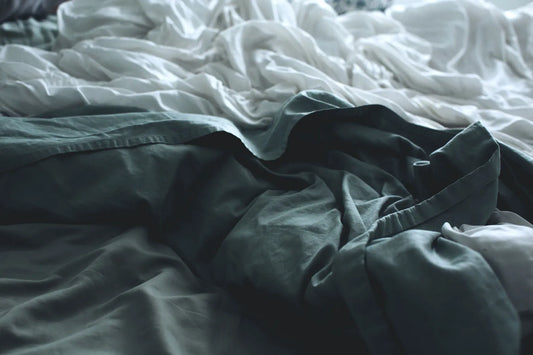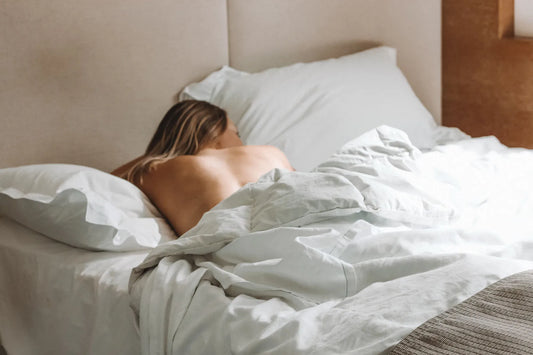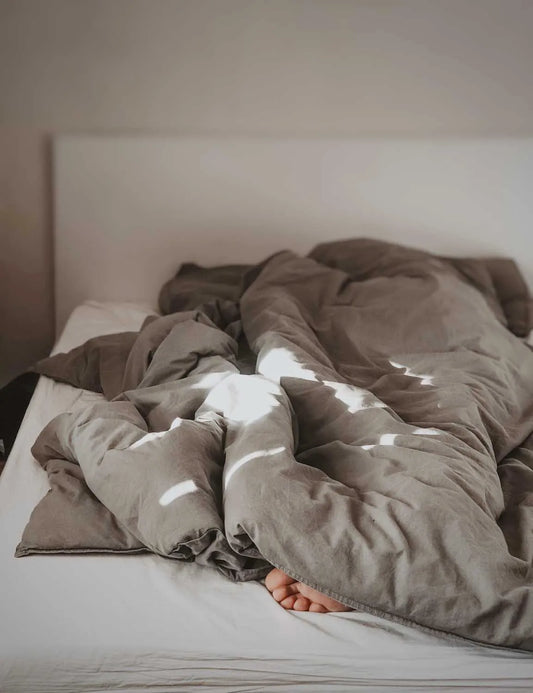Dive into the intriguing topic of the effects of alcohol on sleep quality and duration. At Remly Sleep, we're dedicated to leveraging research for product development, and The Dream Lab is our way of sharing the knowledge we gain with you.
The Relationship Between Alcohol and Sleep
Many people turn to alcohol as a way to relax and unwind, believing that it may help them fall asleep faster. While it's true that alcohol can induce drowsiness and may initially help you fall asleep, its effects on sleep quality and duration can be more complicated than you might think. Various factors come into play, including the type and amount of alcohol consumed, the individual's tolerance, and the timing of consumption in relation to bedtime.
Alcohol affects our sleep in different ways, from disrupting the sleep cycle to exacerbating existing sleep disorders. In this article, we will dive deeper into the relationship between alcohol and sleep, exploring its impact on sleep quality, sleep duration, and sleep disorders. Additionally, we will provide tips on how to reduce the negative effects of alcohol on sleep while still enjoying a glass of wine or a pint of beer in moderation.
Alcohol's Impact on Sleep Quality
Alcohol consumption, especially in larger quantities or close to bedtime, can significantly impact sleep quality. This is primarily due to alcohol's disruptive effects on the sleep cycle, particularly the rapid eye movement (REM) and deep sleep stages. Both REM sleep and deep sleep are crucial for mental and physical restoration, respectively.
REM sleep is the stage when most dreaming occurs and is associated with memory consolidation and emotional regulation. Research has shown that alcohol consumption can suppress REM sleep, leading to fewer REM sleep episodes and shorter durations (Alcohol and sleep I: effects on normal sleep). Reduced REM sleep can result in grogginess, irritability, and difficulty concentrating the following day.
Furthermore, alcohol can cause an increase in light sleep, which is less restorative than deep sleep and REM sleep. Studies have found that people may wake up feeling less refreshed and more fatigued, even if they've slept for the same duration as they usually would (Disturbed Sleep and Its Relationship to Alcohol Use). This effect can be particularly detrimental for athletes, as sleep plays a crucial role in athletic performance and recovery.
Alcohol's impact on sleep quality doesn't stop there. It also affects the balance of our sleep hormones, including melatonin, which is essential for regulating our circadian rhythm. Alcohol can interfere with the production of melatonin, making it difficult for our bodies to recognize when it's time for sleep. Additionally, alcohol can also increase cortisol levels, a stress hormone that can disrupt sleep patterns.
The Importance of Sleep Quality and Duration
Sleep quality and duration are both essential aspects of a healthy lifestyle. The relationship between sleep and physical health is well-established, with numerous studies highlighting the importance of sleep for muscle repair, immune function, and overall well-being. Similarly, the impact of sleep on mental health is crucial, as it plays a role in mood regulation, stress reduction, and cognitive function.
As such, it's vital to prioritize sleep and take steps to optimize it. Incorporating sleep-promoting habits, such as creating a bedtime routine, maintaining a consistent sleep schedule, and limiting exposure to screens before bed, can all help improve sleep quality. Additionally, using sleep aids like the Remly Sleep Mask and the Remly 70% Blue Light Blockers can further enhance your sleep environment and protect your eyes from the harmful effects of blue light exposure.
The Role of Sleep Aids and Lifestyle Adjustments
For those who struggle with sleep, making lifestyle adjustments and incorporating sleep aids can be beneficial. For example, establishing a consistent exercise routine, practicing relaxation techniques such as sleep meditation, and optimizing your sleep environment can all contribute to better sleep quality. Additionally, using sleep aids like white noise machines, which have been shown to improve sleep and relaxation, can be helpful.
Concluding Thoughts
Alcohol consumption can have a significant impact on sleep quality and duration. By understanding these effects and taking steps to minimize them, you can make more informed decisions about your alcohol intake and its potential consequences on your sleep. Remember that prioritizing sleep and employing various sleep strategies can go a long way in promoting overall well-being and maintaining a healthy lifestyle.
Thank you for exploring with us at The Dream Lab. Remly Sleep is on a mission to make you sleep better by sharing the latest sleep research and incorporating this knowledge into our innovative products. We're excited to journey together and discover more insights on sleep and well-being.




